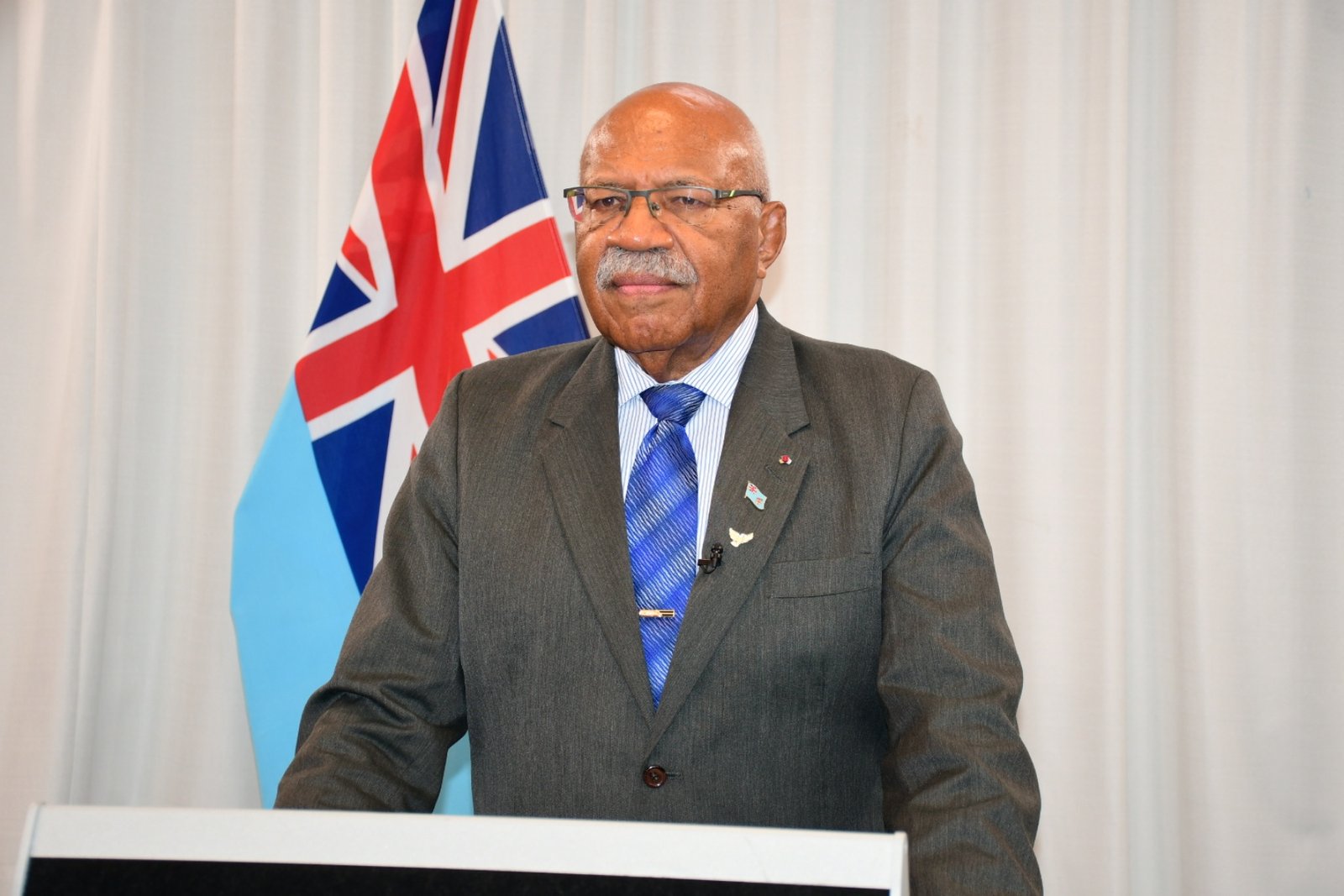
Fiji Prime Minister Sitiveni Rabuka’s scheduled visit to India is set to enhance the already strong strategic partnership between Suva and New Delhi.
The visit comes at a time when India is expanding its strategic outreach in the wider Indo-Pacific region. Adding further significance is the growing global focus on Pacific Islands geopolitics, where China, the United States, Australia, and New Zealand are intensifying their presence.
Accompanying the Prime Minister will be his spouse, Mrs. Sulueti Rabuka, Minister of Health and Medical Services Ratu Atonio Lalabalavu, and other senior officials.
The visit gains importance as the Pacific Islands Forum, scheduled for September in the Solomon Islands, is expected to witness increased Chinese assertiveness. Earlier this year, China signed a comprehensive strategic partnership with the Cook Islands, leading to strains in its relations with New Zealand.
The modern chapter of India-Fiji relations has been marked by significant high-level visits that highlight shared priorities. A landmark moment came in November 2014 when Prime Minister Narendra Modi visited Fiji, the first Indian leader to do so in over three decades. His visit, which coincided with the inaugural Forum for India-Pacific Islands Cooperation (FIPIC) Summit, cemented India’s commitment to the Pacific. Three MoUs were signed—covering a co-generation plant supported by a line of credit, diplomatic training, and land allocation for diplomatic missions—signalling a new era of cooperation.
More recently, External Affairs Minister Dr. S. Jaishankar’s visit to Fiji in February 2023 for the 12th World Hindi Conference further strengthened ties. He signed a visa waiver agreement, launched a solarisation project at the State House under the India-UN Development Partnership Fund, inaugurated the renovated Girmit Gallery, and unveiled a bust of Sardar Vallabhbhai Patel at India House. His engagements with Fiji’s leadership and diaspora reaffirmed the cultural and emotional bonds underpinning this partnership.
In February 2025, Dr. Jaishankar met Prime Minister Rabuka on the sidelines of the Munich Security Conference, reaffirming the commitment to deepen ties. This was followed by Minister of State for External Affairs Pabitra Margherita’s visit to Fiji in May 2025 as a Guest of Honour at the Girmit Day Commemoration. The visit saw the signing of an MoU recognising the Indian Pharmacopoeia, an important step in healthcare cooperation.
While India-Fiji relations have traditionally centred on diplomatic and cultural cooperation, the military dimension is gaining prominence. Prime Minister Modi’s decision to visit Fiji—when invitations to other regional countries such as New Zealand, Singapore, and Indonesia remain pending—underscores the strategic importance New Delhi places on Suva. This would be the first Indian Prime Ministerial visit to Fiji since Indira Gandhi in 1981.
The Indian defence establishment recognises the importance of expanding maritime power in the Asia-Pacific and gaining the acceptance of regional countries. Fiji, given its location and goodwill toward India, is well-positioned to be a key partner. Australia, too, is expected to support such cooperation, particularly as its own strategic partnership with India strengthens.
India’s presence in the South Pacific is essential to register its global impact. With growing economic clout and space technology capabilities, India has the attention of the world. Its reputation as a non-aggressive power that uses military strength only for self-defence makes its presence credible and devoid of ulterior motives. Greater military cooperation with Fiji could also support intelligence-sharing and strengthen joint efforts against terrorism.
Furthermore, the Fijian military is undergoing professionalisation, moving away from political roles and aligning more closely with global standards. Its participation in UN peacekeeping operations offers opportunities for collaboration with India.
Prime Minister Rabuka recently unveiled Fiji’s National Security Strategy (NSS) 2025–2029, alongside Defence Minister Pio Tikoduadua, reinforcing Suva’s commitment to a coordinated and democratic approach to security. The NSS outlines Fiji’s security priorities, identifies threats and challenges, and promotes inter-agency cooperation. Importantly, Rabuka ruled out the establishment of foreign military bases in Fiji but emphasised openness to cooperation in infrastructure and defence partnerships.
The NSS also aligns with the Republic of Fiji Military Forces (RFMF) 5–10 Year Capabilities Plan, which focuses on acquiring advanced patrol vessels and strengthening maritime defences. This demonstrates Fiji’s commitment to safeguarding its resources while contributing to regional stability.
India’s Ministry of External Affairs noted, “This visit underscores the longstanding and enduring ties between India and Fiji and reaffirms the continued commitment of both countries to strengthen relations across all sectors and deepen our close people-to-people ties.”
In conclusion, Prime Minister Rabuka’s visit to India is expected to be a game-changer in the evolving geopolitics of the Indo-Pacific, with implications that extend well beyond the region.
Leave a Reply